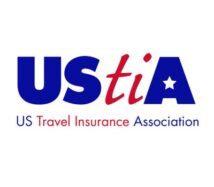Before traveling abroad, it is important to be aware of the vaccines that are necessary for your destination. Vaccines act as a passport to safety and adventure around the world. It is vital to protect yourself and your community by getting vaccinated before you travel.
The measles-mumps-rubella (MMR) vaccine is very important for travelers. Every year, unvaccinated travelers get measles and bring it back to the United States. CDC Travel Health Site provides a guideline for the MMR vaccine:
· For those who travel internationally, CDC recommends that all U.S. residents older than 6 months be protected from measles and receive MMR vaccine, if needed, prior to departure.
· Infants 6 through 11 months old should receive 1 dose of MMR vaccine before departure.
· Children 12 months of age or older should have documentation of 2 doses of MMR vaccine (separated by at least 28 days).
· Teenagers and adults without evidence of measles immunity should have documentation of 2 appropriately spaced doses of MMR vaccine.
Travel Tips for traveling to developing countries:
- Before traveling to countries in Africa or Central/South America it is vital to research whether the yellow fever vaccine is required.
- If traveling to Asia, Latin America, or Africa, travelers may need to get the typhoid vaccine.
-Whenever traveling to any rural or developing countries to ensure your safety research any possible vaccines that may be recommended.
-To avoid possible health dangers, only eat fully cooked food that is served hot (including fruits and vegetables, unless you can wash and clean them yourself).
- Only eat and drink pasteurized dairy products.
-Drink only beverages that are bottled with an unbroken seal (avoid putting ice in your drinks).
-Use insect repellent and make sure you sleep in an air conditioned or screened room to avoid any diseases that can be spread by insects.
-Avoid touching animals especially monkeys, dogs, and birds.











